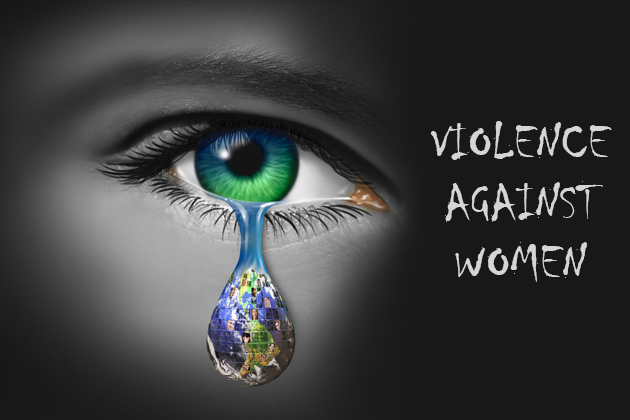
Violence Against Women is the topic of a human rights conference on campus that will include special workshops for high school students.
Violence perpetrated against women is prevalent both in this country and around the world, and the issue will be addressed at this year’s UNESCO Chair in Comparative Human Rights’ International Conference by an international group of speakers.
Earlier this year, the World Health Organization issued a new report declaring that physical or sexual violence is a public health problem that affects more than one third of all women globally.
The global report follows a 2010 report by the U.S. Centers for Disease Control and Prevention, which found that one in four women have been the victim of several acts of physical violence by an intimate partner and nearly one in five women have been raped in their lifetime.
“It is a tragic reality of the contemporary world that although the rhetoric of human rights has become the staple of politics, in virtually every region of the world a substantial percentage of women continue to be subjected to degrading and unacceptable levels of violence,” says Amii Omara-Otunnu, UNESCO Chair in Comparative Human Rights at UConn, who organized the conference taking place on Tuesday, Oct. 22 at the Student Union.
The conference has a roster of speakers that includes Rashida Manjoo, United Nations Special Rapporteur on Violence Against Women; Zainab Hawa Bangura, United Nations Special Representative on Sexual Violence in Conflict; and Jacquelyn Campbell, a national leader in research and advocacy in the field of domestic violence or intimate partner violence who holds the Anna D. Wolf Chair of Nursing at Johns Hopkins University.
“You turn on the news and you almost can’t go a day without hearing about sexual violence and intimate partner violence,” says Kathleen Holgerson, director of the UConn Women’s Center, which is organizing the workshops for high school students. “We will talk [with the students] about the things that happen in their environment that contribute to sexual violence and assault, move them to thinking about the way gender matters to these issues and how gender role stereotypes can contribute to incidents of sexual assault.”
Among the high school students attending the daylong conference will be a group of juniors and seniors from Hall High School in West Hartford, who are enrolled in human rights classes taught by teachers Maryam Wardak and Liz Devine. Wardak teaches human rights classes for sophomores to seniors, using the Universal Declaration of Human Rights as a foundation to discuss violations around the world. Devine teaches a global problem solving class for seniors in which students develop action projects to address specific local, national, or global problems.
Devine says the classes at Hall cover the spectrum of human rights issues reported across the world and those covered by the Universal Declaration of Human Rights, which includes human trafficking, rights of women, rights of children, as well as violence against women. The human rights classes have been offered for more than a decade at Hall.
“We address all the pretty tricky issues in our classes,” Devine says. “We’ve taken [our students] to human rights conferences because of the sophisticated nature of the curriculum.”
Wardak first became involved when she participated in the annual UNESCO International Leadership Training conference in 2006 at UConn and later brought students to the UConn conference on the issue of food security. “The students got a lot out of it,” she says. “Every year [the conference] got better and better.”
The teachers say their students are aware of the issue of violence against women, and their participation in this year’s conference will provide a global perspective for them.
Holgerson says the participation of more than 300 high school students in the conference also provides the opportunity for them to understand that violence against women is not an issue just in other nations.
“Oftentimes we think oh, it’s happening over there,” she says. “This is a way to make the connection that ‘there’ is also ‘here’.”
Previous UNESCO conferences have addressed a range of human rights issues related to health, religion, the environment, food security, and the rights of women and children.



